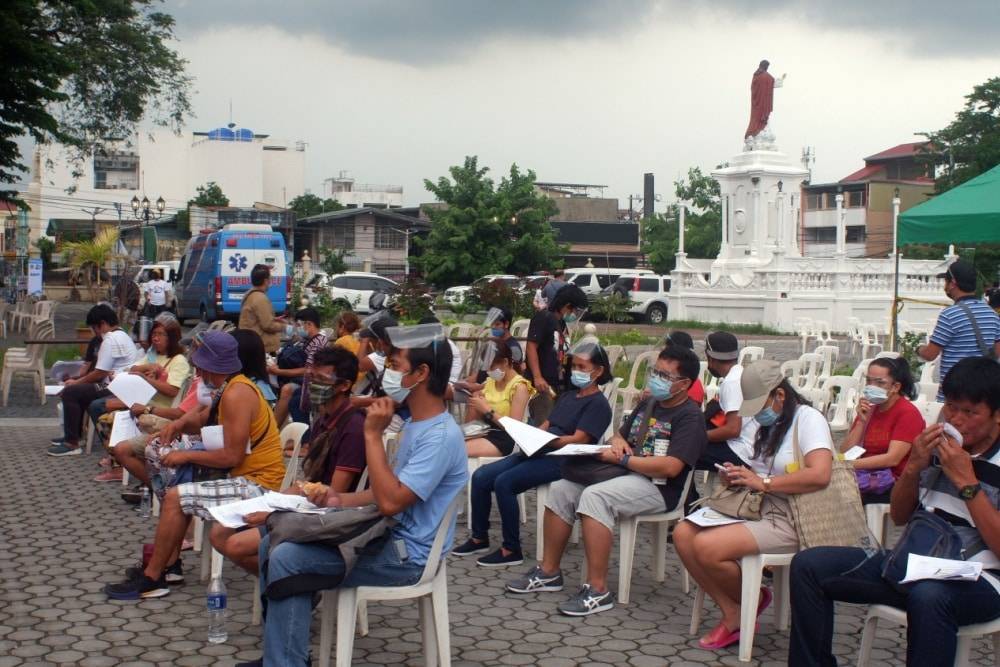The Philippines has secured a substantial grant totalling P145.5 million. This grant supports its efforts in providing additional COVID-19 vaccination and routine immunisation programs.
UNICEF generously provided in partnership with the Canadian government. The Department of Health announced this collaborative initiative. It underscores a commitment to bolstering COVID-19 vaccination and routine immunisation programs nationwide.
Targeted Areas and Focus
The partnership strategically targets regions grappling with pronounced immunisation gaps. These areas exhibit a high prevalence of children who haven’t gotten any childhood vaccines, and communities have a significant population that has not yet been vaccinated with COVID-19 boosters. These targeted regions encompass select municipalities in Antique, Davao Del Norte, and Sarangani provinces, alongside General Santos City and the Special Geographic Area in the Bangsamoro Autonomous Region in Muslim Mindanao.
Gender-Responsive Approach: Tailoring Solutions to Unique Needs
Health Secretary Teodoro Herbosa emphasised the adoption of a gender-responsive approach in implementing vaccination programs. This subtle approach acknowledges and addresses the diverse needs and barriers faced by different gender groups, including socio-economic, cultural, and developmental disparities. By tailoring interventions to suit the unique requirements of men and women, the collaboration seeks to achieve a vaccination coverage rate of 95%. This will mitigate the risks posed by diseases such as measles and polio.
Immunisation Gaps
Official data from 2022 highlights a concerning immunisation gap in the Philippines. Currently, only 637,000 Filipino children are fully immunised, representing a coverage rate of just 60%. This statistic underscores the urgent need to increase routine immunisation efforts to safeguard vulnerable populations against preventable diseases. The looming spectre of outbreaks necessitates swift and comprehensive action.
Addressing COVID-19 Vaccination Challenges
While significant strides have been made in COVID-19 vaccination efforts, challenges persist in achieving widespread coverage, particularly concerning booster doses. While 78 million Filipinos have completed their primary vaccination series, only 23.8 million have received booster doses. Closing this gap in booster uptake is critical in bolstering immunity levels and mitigating the risk of breakthrough infections. Highlighting the importance of not compromising the gains made thus far, especially amidst the emerging variants and waning immunity, is essential.
Fostering Collaboration and Solidarity
The collaboration between the Philippines, UNICEF, and the Canadian government epitomises a shared commitment to prioritising public health and well-being. By leveraging resources, expertise, and global networks, the partners aim to fortify the nation’s healthcare infrastructure and resilience against infectious diseases. This partnership also exemplifies the spirit of international solidarity and cooperation. It also underlines the collective determination to confront the unprecedented challenges posed by the COVID-19 pandemic and its far-reaching ramifications.
Forging a Path to Resilience and Well-being
The receipt of the P145.5 million grant signifies a significant milestone in the Philippines’ ongoing efforts to fortify COVID-19 vaccination and routine immunisation programs. Therefore, the collaboration endeavours to bridge immunisation gaps and achieve optimal vaccination coverage rates with a targeted approach. Additionally, it exhibits a commitment to gender responsiveness and collaborative partnerships. As the nation navigates the complexities of the pandemic, collective action and solidarity remain pivotal in ensuring a healthier, more resilient future for all Filipinos, safeguarding the health and well-being of current and future generations alike.

